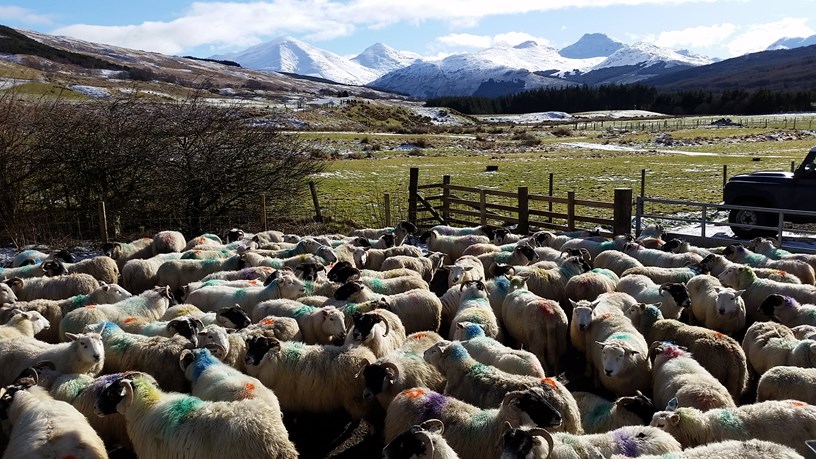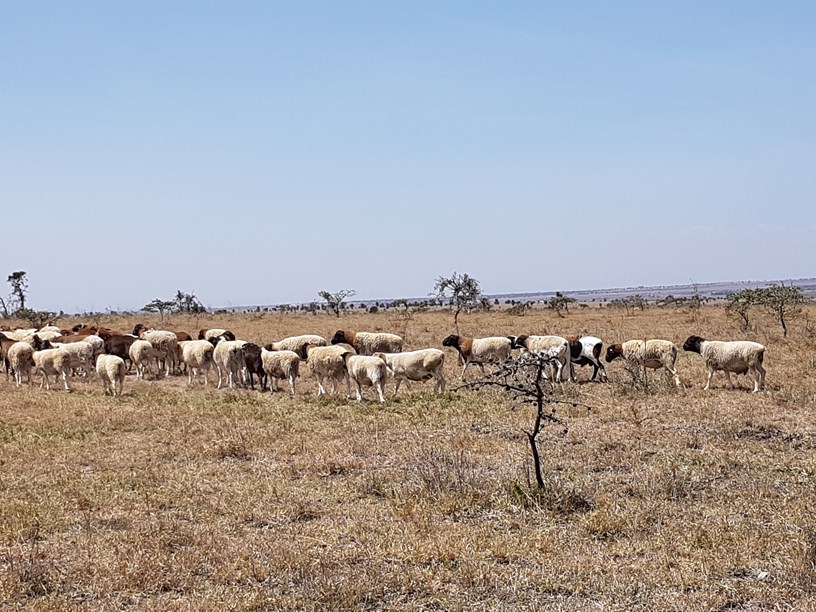SRUC farm recognised in global FAO Award for sustainable livestock innovation

SRUC has been recognised on the global stage as a core contributor to the Global Farm Platform (GFP).
The award honours GFP’s leadership in Sustainable Livestock Transformation, One Health, Animal Health, and Reference Centres and has received a prestigious Technical Recognition from the Food and Agriculture Organisation of the United Nations (FAO).
It was presented to Dr Jordana Rivero, Chair of the GFP, at the FAO Global Technical Recognition Ceremony on 15 October 2025 at FAO Headquarters in Rome, as part of the organisation’s 80th anniversary celebrations and the World Food Forum.
SRUC’s Kirkton and Auchtertyre upland research farms, located near Crianlarich, have been part of the GFP network since 2018. These farms are pioneering new approaches to livestock production in marginal upland environments, integrating precision technologies and low-emission genetics to improve productivity while reducing environmental impact.
Professor Davy McCracken, Head of SRUC’s Hill and Mountain Research Centre said: "SRUC's Kirkton & Auchtertyre upland farms, have been a member of the Global Farm Platform since 2018. Over one third of the world’s land area consists of rangelands where pastoralists graze their animals on natural or semi-natural habitats. This recognition by FAO serves to highlight that our focus at SRUC on how precision livestock farming approaches and associated technologies can help address upland agricultural and environmental challenges continues to have international relevance."
At SRUC Kirkton & Auchtertyre, researchers are using technologies such as GPS collars and electronic weighing systems to breed sheep with traits for parasite resistance and lower methane emissions, achieving 1–2% annual reductions. These innovations are part of the GFP’s hub-and-spoke model, in which research farms act as testing grounds for sustainable livestock practices, with commercial farms and smallholders adopting and adapting them for local use.
The global nature of GFP is further reflected in the work of Kenya’s Kapiti Research Station, another core GFP member. Situated in semi-arid rangelands, Kapiti supports pastoralist communities by providing genetically improved livestock and promoting evidence-based grazing practices. These initiatives help boost herd resilience and productivity in challenging climatic conditions, highlighting GFP’s capacity to deliver tailored, region-specific solutions.

From highland sheep farms in Scotland to arid grasslands in Kenya, GFP institutions are working hand-in-hand to support FAO’s “Four Betters”: better production, better nutrition, a better environment, and a better life.
GFP’s achievements were recently highlighted at the FAO’s 2025 Global Conference on Sustainable Livestock Transformation, where Chair Dr Jordana Rivero showcased how partner institutions like SRUC and Kapiti are driving meaningful change through science-led, locally grounded approaches.
“This FAO recognition reinforces the Global Farm Platform’s role as a global leader in sustainable livestock transformation,” said Jordana Rivero. “Our hub-and-spoke model fosters collaboration across continents, empowering farmers, researchers, and policymakers with innovative, scalable solutions that tackle climate change, biodiversity loss, and food security whilst advancing One Health principles.”
Since its launch in 2014, the Global Farm Platform has grown to include 19 research farms and 28 academic institutions across six continents. The platform has secured over £4 million in funding, delivered 15 international projects, and hosted 35 global workshops. SRUC has also contributed to GFP’s educational mission through student exchange programmes, including the Marshal Papworth initiative, supporting early-career researchers from countries across Africa and Asia.
For more about the Global Farm Platform visit www.globalfarmplatform.org
Posted by SRUC News on 17/10/2025
